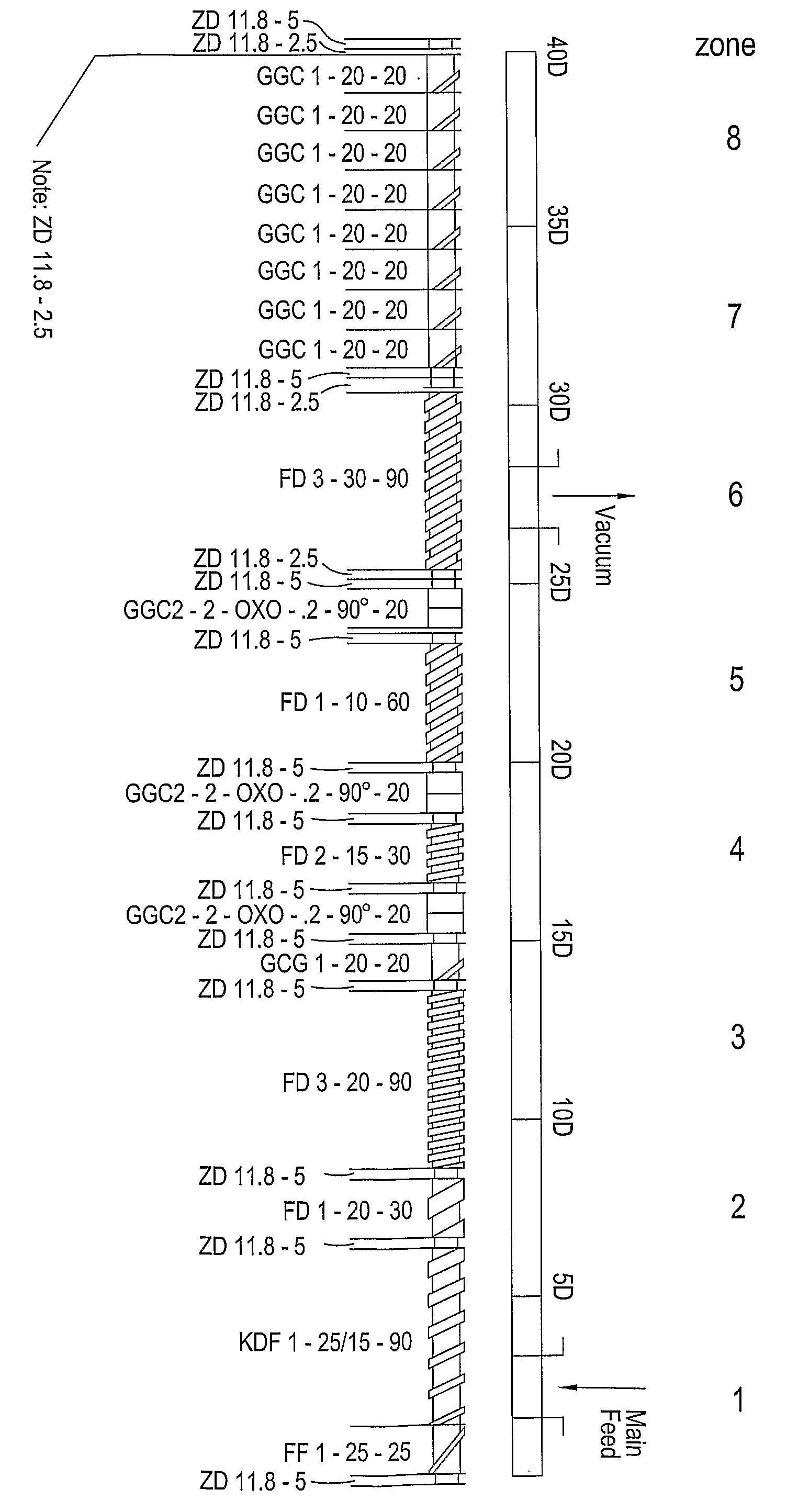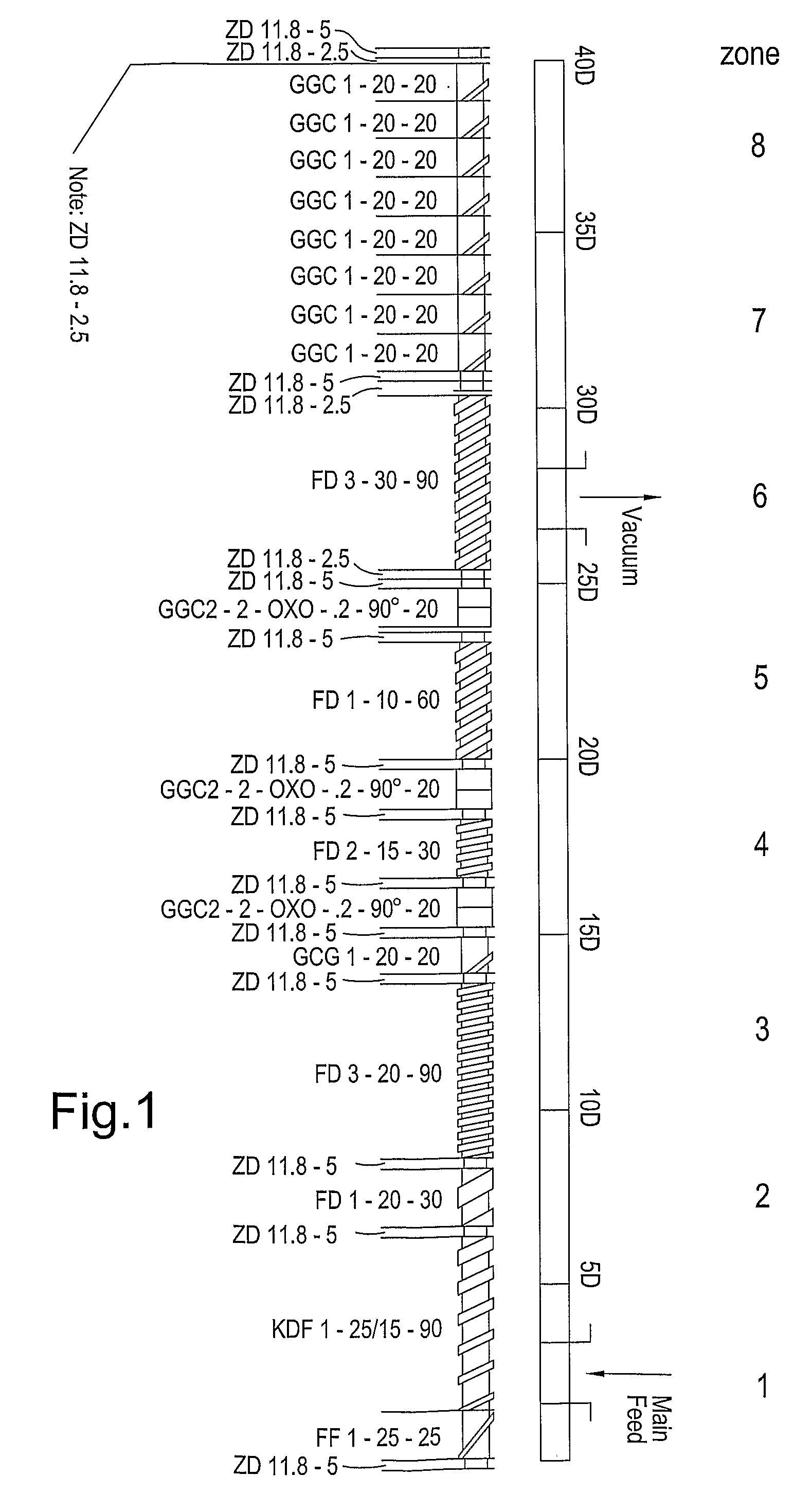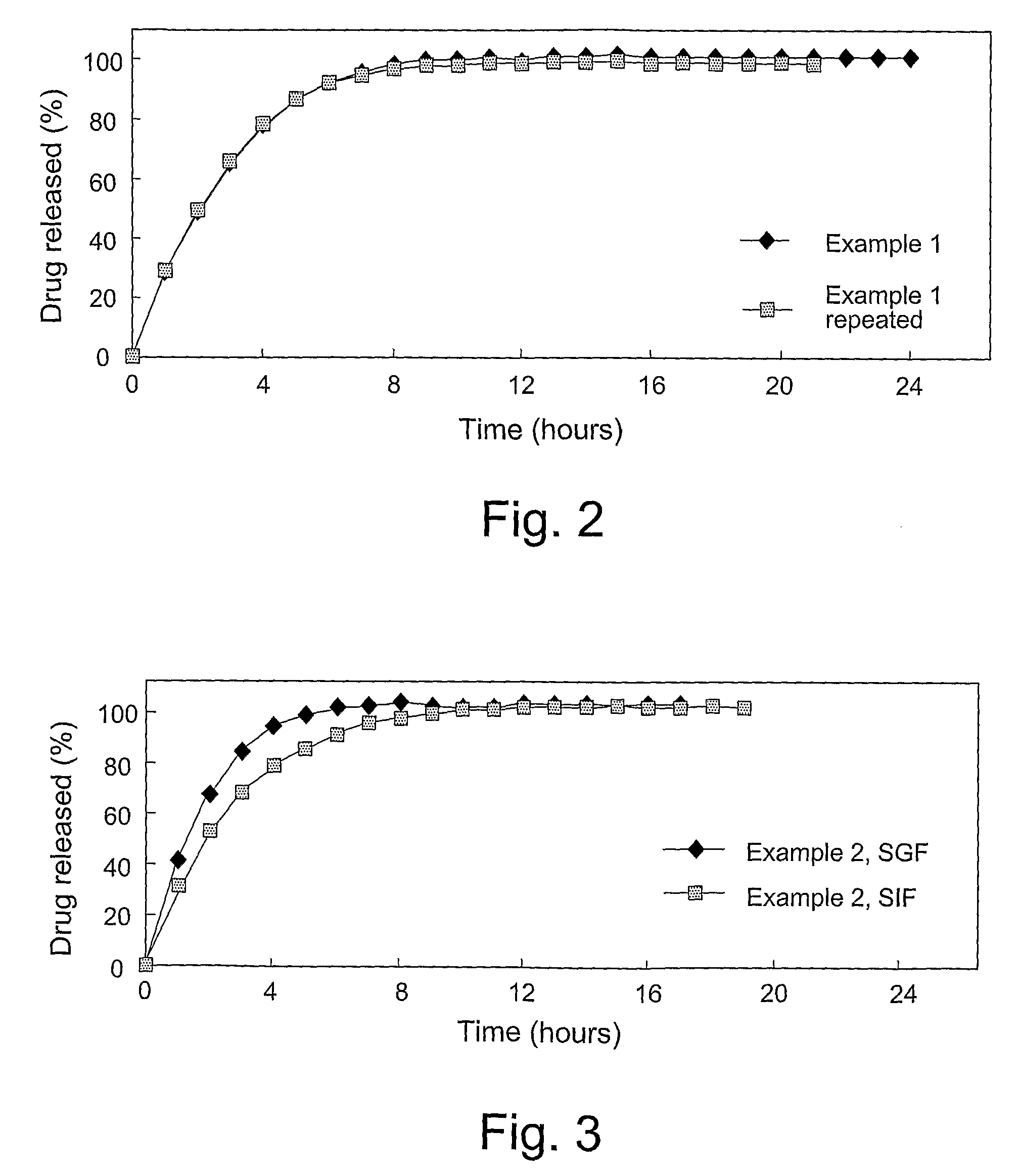Multiparticulates
a technology of multiparticulates and matrix materials, applied in the field of multiparticulates, can solve the problems of thermal dissolution instability, increased torque, and higher processing temperatures, and achieve the effect of reducing the power which has to be supplied to the motor, and reducing the adhesion of the matrix material
- Summary
- Abstract
- Description
- Claims
- Application Information
AI Technical Summary
Benefits of technology
Problems solved by technology
Method used
Image
Examples
examples 1 to 3
[0140]The following trial batches with a drug load of 8.3% w / w were prepared, where the weights are mg per unit dose.
[0141]
Quantity (mg) per unit doseweight (% of total)Example 1Example 2Example 3Oxycodone HCl10.0(8.3%)10.0(8.3%)10.0(8.3%)Eudragit RS PO79.0(65.8%)71.0(59.2%)74.0(61.7%)Eudragit RL PO18.0(15.0%)26.0(21.7%)18.0(15.0%)Stearyl alcohol13.0(10.8%)13.0(10.8%)18.0(15.0%)Total120mg120mg120mg
[0142]Typical batch zone temperatures (° C.), melt pressures and torque used in processing the formulations of Examples 1 to 3 were as follows:
[0143]
Zone temperature (° C.)Melt PressureExample123-67-8910(bar)Torque (%)1144012511512012574-85, e.g. 82-91, e.g. 74-81,82-85,75-83 or83-87 or79-8586-912144012511512012572-90 e.g. 85-92 e.g.72-79 or88-9283-903144010310210510583-9087-90
[0144]The formulation of Example 3 is the currently preferred 8.3% w / w drug load product.
examples 4 and 5
[0145]Q12Hr formulations were prepared with a drug load of 30.3% w / w, to enable filling into size 1 capsules: 40 mg in 132 mg dose weight and 80 mg in 264 mg dose weight. The component levels enabled relatively low processing temperatures to be achieved. The conveyor and pelletiser speeds were optimised during processing. The processing conditions for Examples 4 and 5 are shown.
[0146]Example 4 is a preferred 30.3% w / w drug load product.
[0147]
Quantity (mg) per unit doseweight (% of total)Example 4Example 5Oxycodone HCl40.0(30.3%)40.0(30.3%)Eudragit RS PO68.0(51.5%)66.0(50.0%)Eudragit RL PO8.0(6.1%)7.0(5.3%)Stearyl alcohol16.0(12.1%)19.0(14.4%)Total132mg132mg
Example 4
Extruder Processing Conditions
[0148]
Extruder:Leistritz Micro 18Screw configuration:See diagram in FIG. 1Feed rate (kg / hour):2.0Screw speed (rpm):120Die plate orifice diameter (mm):1.0 (8 orifice plate)Pellet dimensions:1.0 mm × 1.0 mm (range 0.8-1.2 mm)
example 4
[0149]
Heating zone:123-89-10Temp* (° C.)1440107109Torque (%): 94-97Melt Pressure (bar): 94-101Die plate orifice depth (mm): 3.7
Example 5
Extruder Processing Conditions
[0150]
Extruder:Leistritz Micro 18Screw configuration:See diagram in FIG. 1Feed rate (kg / hour):2.6Screw speed (rpm):140Die plate orifice diameter (mm):1.0 (8 orifice plate)Pellet dimensions:1.0 mm × 1.0 mm (range 0.8-1.2 mm)
PUM
| Property | Measurement | Unit |
|---|---|---|
| melting point | aaaaa | aaaaa |
| length | aaaaa | aaaaa |
| time | aaaaa | aaaaa |
Abstract
Description
Claims
Application Information
 Login to View More
Login to View More - R&D
- Intellectual Property
- Life Sciences
- Materials
- Tech Scout
- Unparalleled Data Quality
- Higher Quality Content
- 60% Fewer Hallucinations
Browse by: Latest US Patents, China's latest patents, Technical Efficacy Thesaurus, Application Domain, Technology Topic, Popular Technical Reports.
© 2025 PatSnap. All rights reserved.Legal|Privacy policy|Modern Slavery Act Transparency Statement|Sitemap|About US| Contact US: help@patsnap.com



